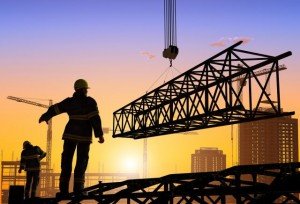Construction Site Slips, Trips, and Falls

Construction Site Slips, Trips, and Falls
The U. S. Department of Labor states in its online publication entitled, “Slips, Trips and Falls: Identification and Prevention” that over 17% of disabling job injuries occur due to falls. Furthermore, slips, trips and falls cause 15% of all this country’s accidental deaths – second only to auto accidents. About one-fourth of all annual job-related injuries are caused by these three accidental work events. Surely all employers can do a better job of handling worker safety.
All employees deserve a safe work site where their good health is a priority. This is even in each employer’s best interests since dangerous construction sites wind up costing businesses higher insurance premiums.
Here’s a look at some construction site dangers that often cause serious personal injuries and deaths. (A significant amount of this information comes from various Department of Labor publications and The Workplace Safety Institute).
Most Common Causes of Construction Site Slips, Trips and Falls
- Objects and substances left on dirty floors destroy the normal amount of traction that would otherwise be available. These problem substances often include: grease, oil, water, mud, ice, sand other materials;
- Improper flooring is rarely replaced. Over time, even the best concrete and metal floors can become so worn down that they offer too little traction for those walking over them as they perform their jobs. Workplace supervisors must check all surfaces periodically to see if they need to be repaved or otherwise improved;
- Employers who fail to require all workers to wear proper footwear each day. When workers wear shoes or boots with worn heels, metal heel plates, and hard leather heels, they’re bound to slip, trip and fall more often. Providing proper work boots to all employees (or mandating their purchase) can greatly improve worker safety;
- Failing to quickly clean up all sudden spills of liquids or supplies. Placing an orange “cone” or yellow tape around a potential “fall zone” is never enough. Employers must have pre-assigned workers who have the duty to immediately clean up all spills – regardless of the nature of the substance or material;
- Every employee must be trained to immediately notify a supervisor of any unsafe condition on the premises. While waiting on their employer to fully respond, most workers should be told that they should personally try to immediately clean up all dangerous conditions they see – unless hazardous chemicals or waste products are involved.
The Department of Labor’s Occupational, Safety & Health Administration (OSHA) provides employers with many regulations and guidelines to help them maintain safe work environments. Every effort must be made to fully comply with these standards so that serious worker injuries can be avoided (along with government penalties and fines).
Observing One Simple Workplace Rule Can Greatly Reduce Slips, Trips and Falls
All construction site managers and supervisors should require all employees to carefully clean up their work areas before clocking out each day. When this simple requirement is ignored, many work sites become quickly compromised by dangerous surfaces, liquid spills, loose lumber and other goods scattered all around. Keeping a clean workplace helps avoid serious injuries and deaths.
Savvy employers also know about all the productivity and income they lose when their workers are constantly tripping and falling in the workplace.
When workers discover that their employers are failing to keep their construction sites free of significant dangers, they must alert them to the problems. Of course, workers also have a right to file OSHA complaints with the government – and even pursue separate litigation under certain circumstances.
If you’ve been seriously injured due to slipping, tripping or falling on a construction site (or while working in another job setting), please contact our office to learn more about your legal rights. Under certain circumstances, some workers are entitled to pursue additional remedies (besides workers compensation).



